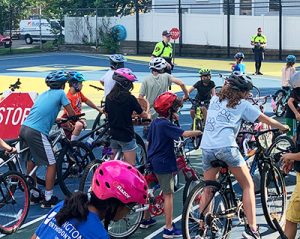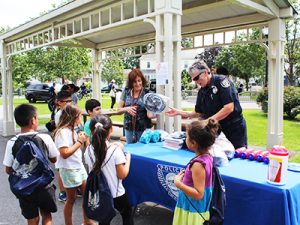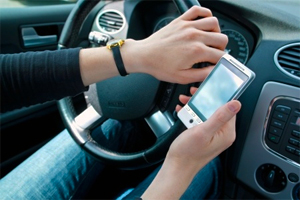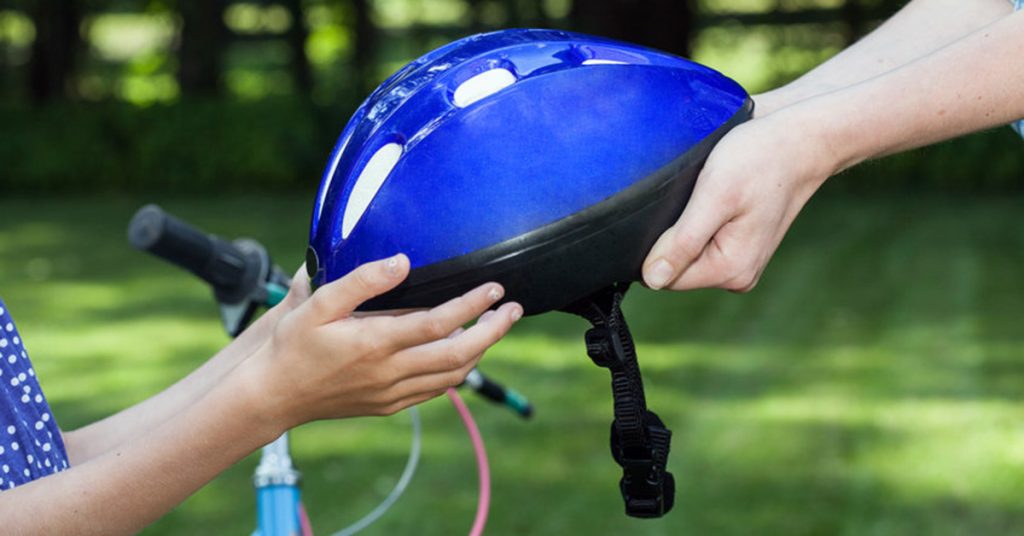Posts Tagged ‘“Back to school”’
Helping Children Remember Bicycle Helmets During Back to School

On your mark, get set, go! Breakstone, White & Gluck was pleased to donate bicycle helmets for children at the Arlington Police Department’s Bicycle Safety Day.
For many children, back to school means back to the school bus. But more and more, many students are walking or biking to school.
Back to school is a good time to introduce children to bicycle safety and this year, Breakstone, White & Gluck was pleased to partner with the Waltham and Arlington police departments to give helmets to children.
On Saturday, August 28th, the Waltham Police Department gave away free Project KidSafe helmets to children at the “Meet the New Chief Day.” The Arlington Police Department also gave away free helmets at Bicycle Safety Day on August 24th at Gibbs Junior High School, where many students walk or bike each day to class.
Our Tips to Help Children Wear Bicycle Helmets Back to School This Fall in Massachusetts
A new school year means a new routine. Whether you or your child ride daily or on occasion, we urge you to commit to wearing a helmet.
According to the National Highway Traffic Safety Administration, wearing a properly fitted helmet is the “single most effective way” to reduce head injuries and fatalities resulting from bicycle crashes. The Insurance Institute for Highway Safety reports the majority of cyclists who ultimately die after a bike crash first sustained a head injury as their most significant injury.
Children Must Wear Bicycle Helmets Under Massachusetts Law. Under Massachusetts law, cyclists who are 16 and younger are required to wear helmets when riding a bicycle. Helmets should be properly fitted and meet the safety standards set by the Consumer Product Safety Commission.
Beyond safety, there are other consequences. A police officer can actually impound your child’s bike for up to 15 days if they are caught riding without a helmet in Massachusetts, though many officers work hard to avoid this step and would rather encourage helmet use.

Waltham police officers give away free bicycle helmets at the “Meet the New Chief” event in August.
Why Parents and Adult Cyclists Should Wear Helmets. Cyclists of all ages should wear helmets to protect themselves.
As a parent, if you wear a helmet and make sure your child wears one when you ride together, your child will take notice. They are more likely to wear a helmet even when you are not there and they will have some practice at fastening their own helmet.
Label Your Child’s Helmet. Write your child’s name inside the helmet, on the strap or on the outside of the helmet.
Wear Your Helmet; Do Not Carry It In Your Backpack. Many children (and adults) ride, then put their helmets in their backpack while they are at work or school. Encourage your child to keep their helmet outside their backpack so they put it right on.
Buy a Durable Bike Lock. Purchase a durable bike lock in case your child cannot find their helmet and has to walk or get a ride home from school or a friend’s house. Keep this on their bike at all times. Insist that your child should contact you and never ride without a helmet.
Buy Your Child a Spare Bike Helmet. Purchase your child an extra bicycle helmet now before they misplace theirs. Unless you live near a bike shop, it can be difficult to step away from your routine to go purchase a bike helmet right away, especially during the busy Fall season.
At the same time, purchase a spare helmet for yourself, too. Keep your spare at home or at the office. This will come in handy if you damage your helmet, lose it or decide you want to take the Blue Bikes bikeshare home.
Free Legal Consultation – Boston Personal Injury Attorneys
With more than 100 years combined experience, Breakstone, White & Gluck has been consistently recognized as a top-rated Boston personal injury law firm. Our attorneys specialize in representing those injured by negligent driving, bicycle accidents, premises liability accidents, defective and unsafe products, construction accidents, medical malpractice and wrongful death.
If you have been injured, learn your rights. For a free legal consultation, contact Breakstone, White & Gluck at 800-379-1244 or 617-723-7676 or use our contact form.
Please Put Down Your Cell Phone, Eliminate Driving Distractions for Back to School
 We suggest parents now talk to your children about the rules for getting to and from school safely. No skipping over the hard part: talking about when everyone, parents and children alike, should put down the cell phone.
We suggest parents now talk to your children about the rules for getting to and from school safely. No skipping over the hard part: talking about when everyone, parents and children alike, should put down the cell phone.
Walking to School. Encourage your child to use sidewalks and crosswalks with crossing guards or walk signals. Agree on a route with your child and never let them walk alone. Every year, drive or walk the route yourself so you can identify any problems.
Bicycling. Make sure your child wears a helmet – it’s the law and it’s common sense. While your child has many of the same rights as a driver, remind them to take it slow in parking lots or and when passing cars. They should learn to make eye contact with drivers in their vicinity–that way they can read the intention of the driver more clearly. Read about Massachusetts law for bicyclists.
Late Activities. It will get dark earlier now. Make sure you child has a safe way home after it gets dark. Consider picking them up or make other arrangements.
Reflective Clothing. If your teenager needs to walk at night or be near traffic, consider purchasing reflective clothing to keep at home. Many backpacks and sneakers have reflectors–look for products like that.
Ask Your Children to Put Away Their Cell Phone. When students are distracted, they may not be able to respond to drivers who are not using caution. Safe Kids Worldwide, a non-profit organization, recently reported that it observed 34,000 children crossing the street near 68 U.S. schools. Of these, one in five high school students were distracted by an electronic device. The rate was one in eight among middle school students.
The numbers are significant because pedestrian accidents involving teens age 16-19 have increased 25 percent over the past five years, Safe Kids Worldwide reports. This age group now accounts for about half of all pedestrian accidents among youth.
School Buses. At the beginning of the year, stand out at the bus stop with your children. Explain to them the appropriate areas to stand while waiting and how to board the bus.
Parents and Teen Drivers: Commit to No Distracted Driving
Finally, parents if you are driving, commit to putting away your cell phone. Texting while driving is against the law in Massachusetts and that includes viewing texts, e-mails or browsing the Internet.
Drivers need to eliminate distractions, especially when children are in the car, and especially in busy drop-off areas at schools, because car accidents can occur. This time of year, bus drivers and other parents who are driving are still getting used to their new routine and may not use proper caution when stopping or turning.
Also avoid using your cell phone while parked outside of schools or at bus stops waiting for your children – even just to make phone calls. An accident can happen in the instant you let your guard down and reach for your cell phone to view a text message or check in on a social media account.
If you have a teenager who drives, remind them not to use their cell phone while driving (this is the law in Massachusetts for junior operators). You have probably done so in the past, but explain the school parking lot is busy and there is no room for distracted driving. If they want to use their cell phone in a parking lot, suggest they park the car, get out and walk off the pavement first.
Related:
Distraction.gov
Filmmaker Explores Painful Consequences of Texting While Driving
For a free legal consultation, contact us at 800-379-1244 or 617-723-7676 or use our contact form.


